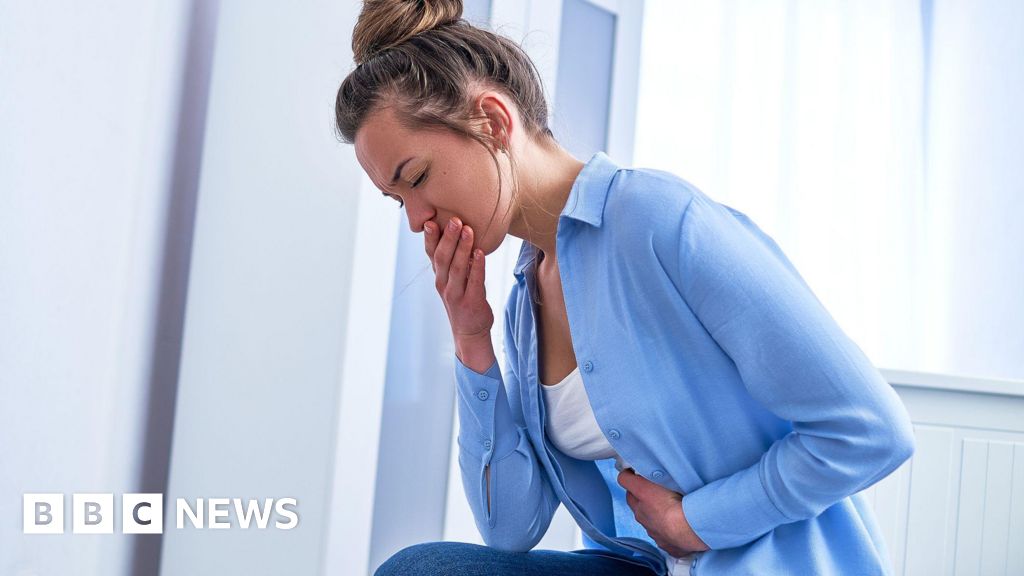Hospitals in England have been “hit by a surge” of norovirus – the winter vomiting bug – adding to mounting pressure on the NHS, health officials say.
Data shows there were 784 patients a day in hospitals with the virus last week.
This is up almost 80% on the same period the year before.
Health Secretary Wes Streeting said patients “continue to face unacceptable levels of care” this winter despite a decline in some other winter viruses such as flu.
Hospitals are currently seeing the highest levels of norovirus – a stomach bug that causes vomiting and diarrhoea – since January 2020.
Most healthy people recover in a few days, but it can cause serious problems in vulnerable people and young children.
One problem is that it spreads very easily – with just a few viral particles needed to infect someone – for example through close contact with someone who has the virus, or by eating food prepared by someone with it.
It can also stick around on surfaces and has affected whole football teams in the past.
This poses a challenge for hospitals – where entire wards sometimes need to be shut to new admissions if a patient is identified as having the virus. Wards then need to be out of action to be deep-cleaned.
The latest data on winter viruses shows:
- Flu rates have dropped since their peak, although they still remain almost 2.5 times higher than this time last year
- There were on average 3,800 patients in hospital with flu each day last week
- There were some 1,000 patients on average in hospital with Covid each day
- One in seven hospital beds was occupied by people well enough to be discharged
Prof Julian Redhead, NHS national clinical director for urgent and emergency care, said norovirus, along with higher than normal rates of flu and other winter viruses – and continued issues in delays in discharging patients – means hospitals remain extremely busy with patients.
“Staff are working incredibly hard to see patients as quickly as possible, and it is welcome news that flu cases have now peaked.
“Patients should continue to use 111 and 111 online if you need advice and support for health conditions, and call 999 or go to A&E in life-threatening emergencies.”
Streeting said: “It’s welcome that flu rates are starting to decline and ambulance handovers are improving – but we’re not out of the woods yet.
“If you’re eligible, it’s not too late to get your flu vaccination – contact your local pharmacy or GP to protect yourself this winter.”


